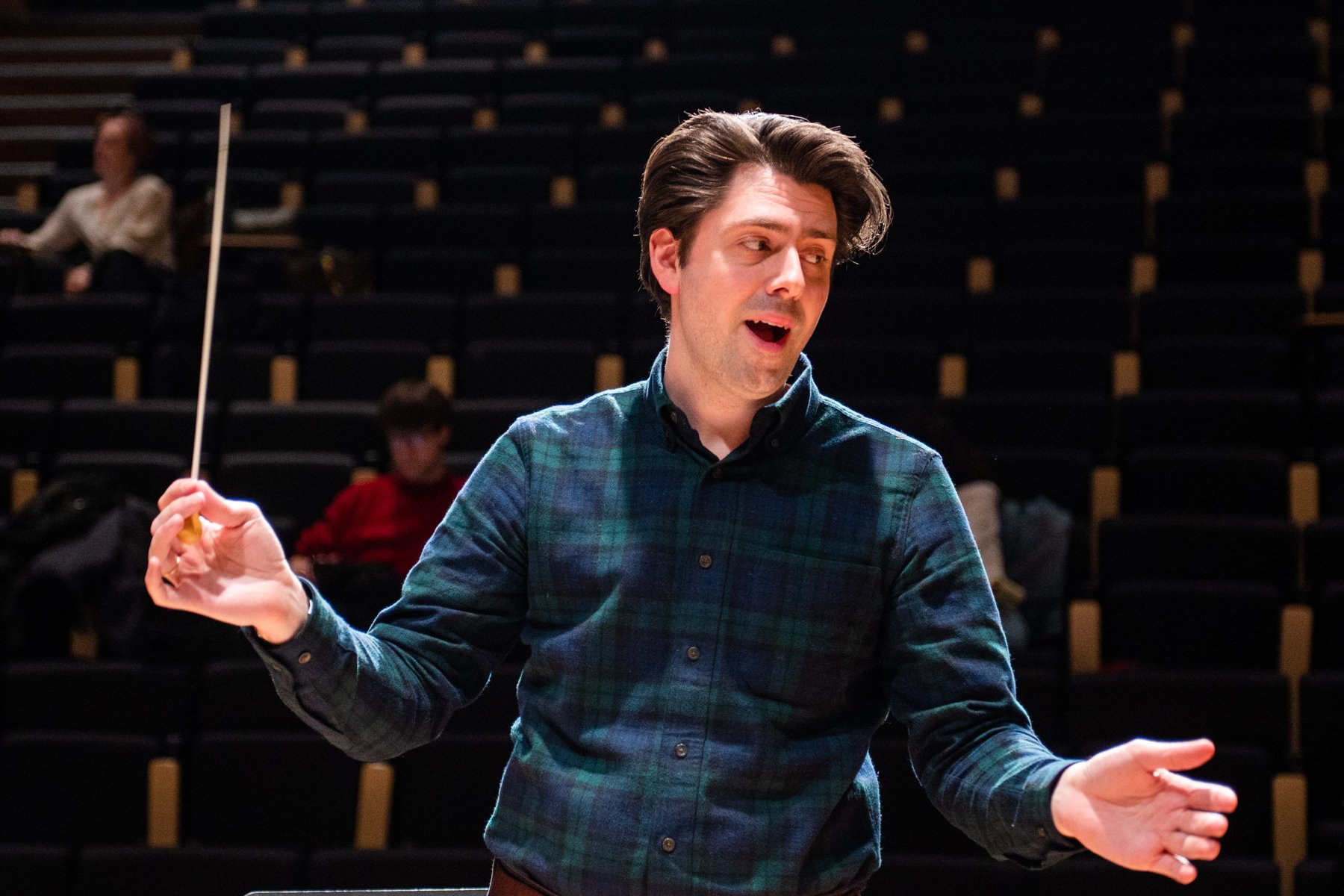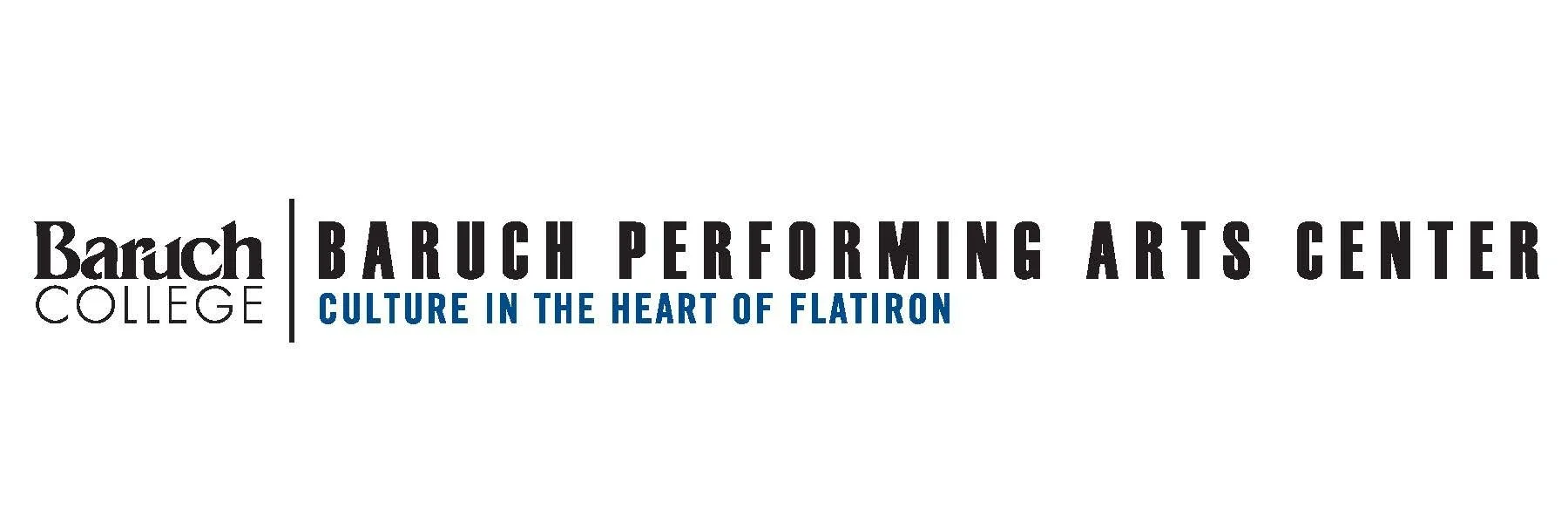“These are not the kinds of operas people fall asleep in”
An interview with Heartbeat Artistic Director Jacob Ashworth on Tosca, Lady M, and our upcoming Spring Festival.
Heartbeat Opera returns to Baruch Performing Arts Center in April with two adaptations of classic operas playing in repertory: a TOSCA inspired by today’s political protests in religious dictatorships and a LADY M that captures the moral compromise at the heart of contemporary American success.
As the cast and crew were moving from the rehearsal studio into the theater, BPAC’s Managing Director Howard Sherman interviewed Heartbeat’s Artistic Director Jacob Ashworth about what’s in store for audiences at the Spring Festival…
Q: What was behind the selection of these two works being produced together this year? How do they work in repertory?
Ashworth: The audience is going to make those connections for themselves — or enjoy the contrast between them. These two pieces do share a lot of questions about power, and questions about societal issues like class and race in Lady M, authoritarianism and oppression in Tosca. Of all the festivals that we've done, this is one that really tries to open its eyes out onto the entire world, and with Tosca especially into a very specific part of the world which we are not naming in print for safety reasons. Our Lady M is concerned with the global north and south, the class divides within society, here in high-powered New York and beyond.
Q: Both of these pieces are adapted. What does it mean, when you adapt an opera for present day audience?
Ashworth: Adaptation, for us, is a range of activities. From the nuts and bolts of it, we try to get a piece down to about 90 minutes, which is a length that our audiences love. People are able to digest so much more, and it really packs a punch. Then we’re slimming down the cast sizes, taking out some of the choruses, and Dan arranges these enormous scores for smaller bands. But we’re not reducing these pieces; in fact we’re exploding something out from inside. It feels like somehow these operas are bigger than they’ve ever been, even though they’re shorter and with fewer people.
In the case of Tosca, we have developed a radical vision around the piece, setting it in a religious authoritarian regime that folks might recognize from the news, especially any Farsi speakers. [Tosca will be subtitled in both Farsi and English.] That affects how we treat some of the chorus moments. For instance, at the end of Act One in Tosca, there's a very famous chorus with tons of people on stage, and you hear voices of men, voices of women and children, along with Scarpia, the villain of the story. In our version, in which gender plays an important role, we are doing the chorus with exclusively male voices. The sound when you remove the female voices and remove the children’s voices — you get this horrifying masculinity. Suddenly the Puccini music — without changing it at all, it’s exactly the same notes that he wrote — sounds harrowing, instead of sounding like this great, glorious thing. It’s just this small change, and suddenly, it takes on a completely different meaning.
With Lady M, the adaptation is extensive: reordering parts of the piece, changing where some of the lines are and what some of the lines mean, and redistributing vocal parts of different characters. We’re taking choruses and other soloists that are part of a larger cast and turning them into a trio of three amazing, virtuosic women: the three Sisters. We’ve brought Shakespeare in — we’re really adapting the Shakespeare and the Verdi. Some of the cuts and some of the moments that shift from one scene to the other are quite abrupt, very fragmented, creating the feeling of a fantasia through the whole piece. A character’s aria will actually be interrupted with another scene that then comes back to that aria, which would absolutely never happen in the original.
Q: If I’m a traditional operagoer, am I going to recognize what I see?
Ashworth: I think you’re going to recognize Tosca very well. And you’re going to see something happening on top of it, a second layer to the piece: our cast is playing a troupe of actors risking their lives to present the uncensored version of Puccini’s opera, in a country where censorship reigns supreme and has a stranglehold on the arts. The great joy for us is that the Tosca they’re presenting, we think it’s a really amazing version of Tosca. So our approach is not, “Oh, well, Tosca. That part will take care of itself. Let’s spend our efforts on this other layer.” Instead, we're trying to create the best Tosca we possibly can, while also being ambitious enough to tell another story alongside it, interwoven with it.
People who know the Verdi Macbeth are going to see a super radical adaptation that you could never have imagined. But similarly to what Heartbeat has always done, it really comes from inside the piece. I think people who know the Shakespeare play will also have a fun time seeing this Shakespeare/Verdi blend, and seeing what they’ve each contributed to this piece. One of the things that I love about the Lady M adaptation is that I feel like all along, we’ve been following in Verdi's footsteps, because as much as Lady Macbeth is a beloved figure in Shakespeare, she is well known to have not that many lines. Verdi expanded her role. Verdi said, I want more of her in this opera. We’re continuing down that path saying, “Let’s really make it centered on her.”
Q: Let me flip the question – if I am someone who doesn't go to opera much at all, what would prompt me to want these to be my introduction?
Ashworth: If you’ve never seen an opera before, and you come to Lady M, you are going to think that you just saw the coolest rock performance – you’re going to hear electric guitars, you’re going to hear amplification, the Sisters with body mics being mixed live and transformed into the creepiest, most electrifying trio. You’re going to see a band with octopus-like arms, playing all these instruments. What you're going to see on stage is this portrait of a power couple, their marriage, their choices, and how everything they do collides with the world they don’t see around them — the people who labor for them, the environment they are destroying. I think that a lot of the strength of Lady M is that Emma is on that wavelength of comforting the disturbed and disturbing the comfortable. It’s a great first opera for someone to see – it’s alive, it’s electric, and it never stops.
Tosca is going to be this sumptuous musical feast, as Puccini always is. But basically Tosca is like watching an action movie. It is so packed with plot, there is so much going on! It's really one of the most intricate stories ever told in opera. It has everything in it. It’s got love, it’s got revolution. It has intrigue, interrogations, daring escapes. In our version, the danger that is alive for the actors the entire time—they are risking their lives. From the first moment of the show, you’re on the edge of your seat.
These are not the kinds of operas people fall asleep in.
Rehearsal photo credits: Russ Rowland
Performances of Heartbeat Opera’s spring repertory of Tosca and Lady M play at the Baruch Performing Arts Center’s Nagelberg Theater from April 11 to 23. For tickets, click here:




